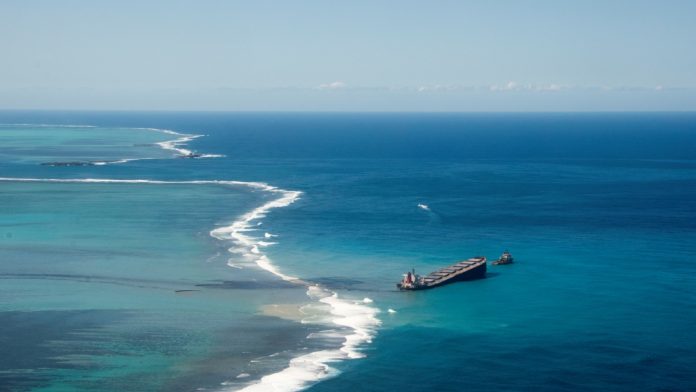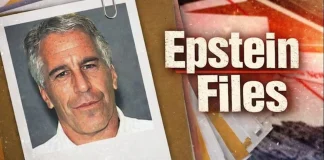[ad_1]
Mauritius is known to most people as a popular holiday destination because of its gorgeous beaches, volcanic rocks, its fragile ecosystems of mangrove forests, coral atolls, underwater coral reefs, seagrass, and historic forts. But in early 2020, the tourism industry – a key sector in the Mauritian economy – was hit hard due to the outbreak of COVID-19, hurting the livelihoods of a large part of the local population. And what happened several months later completely devastated the island nation.
On July 25, the Japanese vessel MV Wakashio, transiting too close to Mauritius, crashed into one of its most fragile coral reefs. On August 6, it began leaking fuel, which turned out to be a new type of highly toxic heavy oil. Before the leak was stopped, about 1,000 tonnes of oil had seeped into the Indian Ocean, severely contaminating Mauritius’s shoreline and lagoons in what would become the worst environmental disaster that the country had ever known.
Tens of thousands of people who volunteered for the clean-up, including members of local fishing communities, were exposed to the toxic components of the oil spill, which damaged the island’s food system and degraded its attractiveness for tourism. Three sailors died and one went missing while towing a barge carrying oil from the wreck. More than 50 whales and dolphins washed up dead on the island’s shores; the government is yet to release the full details of the autopsies of the animals which would confirm whether their deaths were caused by the oil spill.
In the months since the tragedy struck Mauritius, instead of ensuring full transparency over the fallout of the oil spill and taking urgent steps to ensure it does not repeat, the government, the Japanese corporation, and international organisations that got involved have withheld crucial information from the public.
Today, uncertainty about Mauritius recovery persists, while no major action has been taken to protect the island’s waters from a future incident.
No comprehensive information has been made publicly available on why the Wakashio ran aground, on the possible impact of the oil spill on people’s health and on nature, or on why the front section of the vessel was sunk into a whale’s nursing ground. Questions have also remained about the completion of oil fingerprinting – an important process that would provide conservationists with important insight into the effect of the oil spill on marine life.
The government has also done little to make sure another oil spill does not happen. Mauritius’s coastline is vulnerable to damage by international maritime activities and it is a risk that must not be tolerated given their ecological, socioeconomic and scientific significance.
One of the steps the government could take in that direction is to create a Particularly Sensitive Sea Area (PSSA) with the help of the International Maritime Organisation (IMO). A PSSA would establish an area which ships would have to avoid. This would help the authorities preserve the biodiversity hotspots in Mauritius’s waters and ensure a safer route for the shipping industry.
Such PSSAs should be established not just in Mauritius but in other areas around the world to protect marine life and the livelihoods of local people. They should be an integral part of the strategy to protect 30 percent of the planet’s oceans and land by 2030, which will be negotiated at this year’s United Nations Biodiversity Conference to be held in Kunming, China.
Greenpeace has already publicly called on Mauritius’s government to take action and create a PSSA. The same was suggested even by the IMO, recognising the urgent need for greater protection. Yet the government remains silent about what has happened since the MV Wakashio ran aground and about its plans to ensure such an oil spill never happens again.
The companies involved in the incident have also been slow to take full responsibility for what happened and take appropriate action. The MV Wakashio was owned by Japanese company Okiyo Maritime Corp, a subsidiary of Nagashiki Shipping, and was operated by Mitsui OSK Lines (MoL), one of the world’s largest shipping companies.
After the oil spill, MoL rushed to publish an apology letter, but that did not curb the public outrage that ensued in Mauritius and Japan. Mauritius had some of the largest protests in its history demanding urgent action and compensation. In Japan, tens of thousands signed petitions demanding MoL and Nagashiki Shipping take responsibility, make funds available for the people of Mauritius and divest from fossil fuels. Greenpeace Japan continues to engage with the companies over these demands.
But corporate responsibility should go beyond MoL and Nagashiki Shipping. While shipped goods are an integral part of modern life and the global trade system, the shipping sector, which is a significant polluter and source of greenhouse gases, remains entirely out of touch with contemporary political, social and ecological priorities.
Unlike other branches of the global economy, shipping has quietly excluded itself from the Paris Agreement. That is not because there are no solutions for a transition towards renewable energy within the sector, but rather because the shipping industry has simply been let off the hook for too long. As Mauritian development economist Nishan Degnarain wrote in a recent article for Forbes: “shipping remains one of the most dangerous industries in the world – not because of the conditions of the ocean – but the conduct of the regulators and operators”.
The oil spill in Mauritius was not the only one in 2020. Venezuela’s Morrocoy National Park suffered from a massive leak from a nearby refinery, which released about 3,000 tonnes of oil. More than 20,000 tonnes of diesel leaked from a collapsed fuel tank near the city of Norilsk in Russia’s Arctic north, causing massive pollution of freshwater. In Canada, roughly 140 tonnes of oil was spilled at Sumas Pump Station in Canada’s British Columbia province over fields covering the aquifer that the Sumas First Nation use for drinking water; that was the fourth time the pipeline has spilled near the reservation in the last 15 years.
Oil spills always attract international media’s attention for a few days at best and then are forgotten, but people and nature in those affected areas take decades to heal. Some losses for Mauritius’s economy and biodiversity might never be recovered.
While an apology and compensation by MoL is welcome, it cannot change what has happened. Neither would the resignation of any Mauritian politician as a result of the scandalous handling of the oil spill.
These would be empty gestures unless lessons are learned from what happened and the seas around Mauritius are protected. While taking action to prevent future oil spills, corporations and governments must also accelerate their divestment from fossil fuels. A growing movement of citizens is rising up in Africa and across the world to demand action. Their voices must be heard.
The views expressed in this article are the authors’ own and do not necessarily reflect Al Jazeera’s editorial stance.
[ad_2]
Source link











